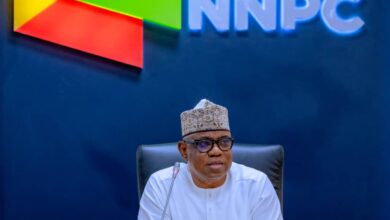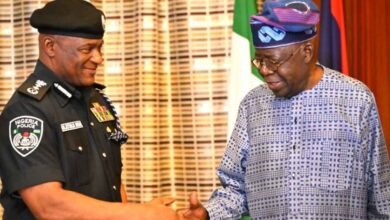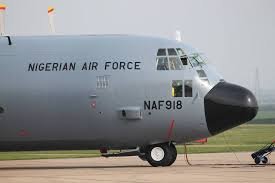
One of the greatest challenges in managing security and its growing complexities is coordination. Who brings the entire apparatus together to focus on a common objective? With an array of tactical units, defense agendas, and political considerations often pulling in different directions, the gap between political leadership and security operations has historically undermined efforts to maintain law and order. Bridging this divide requires a unifying figure capable of harmonizing diverse agendas into coherent action.
The concept of a National Security Adviser (NSA) emerged from the need for effective coordination of security policies and crisis management in an increasingly complex global environment. The roots of this role can be traced to the creation of the National Security Council (NSC) under the United States’ National Security Act of 1947, following World War II. It aimed to streamline decision-making and enhance inter-agency cooperation on national security issues.
The NSA was envisioned as a key figure, with the key role of synthesizing intelligence and providing impartial advice to the President.
Over time, the position became a central pillar in national security frameworks across the world. Countries such as the United Kingdom, India, Russia and Nigeria adapted the role to their unique governance structures, recognizing the importance of a dedicated adviser to oversee and coordinate security strategy.
The role of a National Security Adviser (NSA) is far more than the sum of its parts. It is often described as the nerve center of a country’s security apparatus. Whoever is the NSA is not merely a figure whispering in the ear of the head of government but rather the architect of coordination across a bewildering array of agencies and stakeholders.
At the core of this role lies strategic coordination—a balancing act between defense forces, intelligence services, law enforcement, and increasingly, sectors beyond traditional security domains.
As modern threats evolve, NSAs are thinking beyond battalions and surveillance. Food security, energy stability, and public health have all proven themselves to be just as crucial to national survival as defense strategies. One need look no further than the COVID-19 pandemic to appreciate how the NSA’s remit can extend to supply chains and vaccines.
The job also demands crisis management skills of the highest order. Whether responding to terrorist attacks, civil unrest, or the outbreak of a deadly virus, the NSA must ensure that the entire machinery of government speaks with one voice and acts decisively. The NSA often becomes the critical point of contact when chaos looms, charged with harmonizing fragmented responses and injecting a sense of urgency.
But it’s not all about firefighting. The office is also steeped in policy development, serving as the architect of national security strategies that anticipate emerging threats and prescribe long-term measures to safeguard the nation. Advising the highest echelons of government requires both tact and foresight—a rare combination of skills few possess.
In an age of instant communication and disinformation, public narrative management has become yet another facet of the NSA’s portfolio. Carefully crafted statements, or deliberate silences, can bolster public confidence in uncertain times. Striking the right balance between transparency and secrecy is a delicate art, one that separates competent advisers from clumsy bureaucrats.
There is also the domain of international diplomacy, where NSAs engage with their counterparts across the globe. Security is no longer a purely domestic affair. From forging counterterrorism alliances to brokering ceasefires, NSAs operate as shadow diplomats, shaping global security partnerships and influencing how nations navigate shared threats.
The modern NSA must therefore be part strategist, part diplomat, part crisis manager, and part public manager. It is a role for someone who sees not just the trees but the entire forest—a position that, when occupied by the right person, can safeguard a nation’s present and shape its future.
The influence of National Security Advisers (NSAs) can often be measured by their handling of critical events and their ability to shape national strategy in times of peril. From Cold War brinkmanship to counterterrorism operations, some NSAs have left indelible marks on the security landscapes of their countries — for better or worse.
Take McGeorge Bundy, the cerebral confidant to Presidents John F. Kennedy and Lyndon B. Johnson, whose tenure defined the high stakes of Cold War diplomacy. Bundy’s deft coordination during the Cuban Missile Crisis in 1962 averted a catastrophic nuclear confrontation. By managing the naval blockade and spearheading delicate diplomatic negotiations with the Soviet Union, Bundy’s actions have been credited with keeping the world from the brink. Yet his role in escalating U.S. involvement in Vietnam cast a long shadow, with historians questioning whether his strategic myopia fueled a conflict that devastated Southeast Asia and marred U.S. foreign policy for decades.
In the United Kingdom, Sir David Omand, serving as the first Security and Intelligence Coordinator from 2002 to 2005, laid the foundations for what would become the UK’s National Security Adviser role. His tenure came in the aftermath of the September 11 attacks, as the UK grappled with evolving threats. Omand is lauded for modernizing intelligence frameworks and strengthening counterterrorism operations, particularly through enhanced information sharing. However, his staunch advocacy for mass surveillance raised alarms about civil liberties, with critics contending that his approach risked undermining public trust.
Meanwhile, in India, Ajit Doval, a veteran intelligence officer and strategist, reshaped the nation’s security posture under Prime Minister Narendra Modi. His tenure has been marked by audacious moves, including the surgical strikes in 2016 following the Uri attack and the Balakot airstrikes in 2019. Doval’s assertive strategies are hailed for projecting strength, yet critics caution that his hardline approach may escalate regional tensions with Pakistan rather than promote long-term stability.
Closer to home in Nigeria, Andrew Azazi faced formidable challenges during his tenure from 2007 to 2012. Tasked with combating the rise of Boko Haram, Azazi attempted to coordinate military operations and bolster intelligence efforts. Despite these efforts, Boko Haram’s influence expanded, leading to widespread criticism of his inability to foster effective inter-agency collaboration or engage meaningfully with affected communities. Analysts argue that a more inclusive strategy—working with all security stakeholders—might have mitigated the insurgency’s devastating impact.
These figures, each navigating their nation’s unique security terrain, exemplify the complexity of the NSA role. Success demands a careful balancing act between assertive action and long-term stability, strategic foresight, and public accountability. The lessons from their tenures remain instructive for future occupants of this critical office.
Dahiru Bashir Hassan is a security researcher and writes from the FCT




